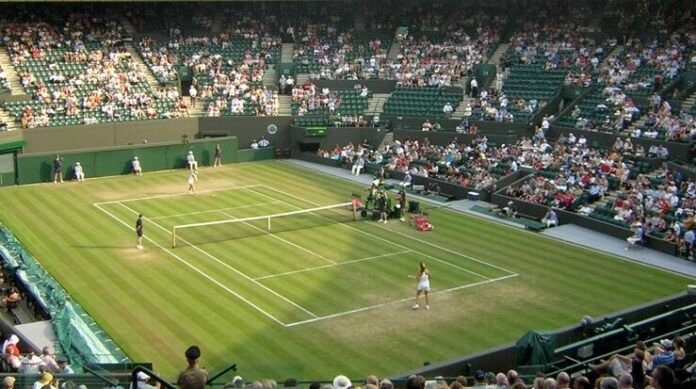Wimbledon admits “human error” after line-calling tech fails in Brit Sonay Kartal’s dramatic centre court defeat
Wimbledon organisers have issued a rare public apology after a critical electronic line-calling failure disrupted a high-stakes Centre Court match, leaving players stunned and fans fuming.
The error occurred during British No. 3 Sonay Kartal’s fourth-round match against Russian veteran Anastasia Pavlyuchenkova, when the newly introduced AI-powered line-calling system, which replaced human line judges this year, inexplicably deactivated for one game. The glitch robbed Pavlyuchenkova of a crucial point — and sparked furious accusations of favouritism.
The 34-year-old Russian, serving on game point, argued that Kartal’s return had landed out. But with no call from the system and the umpire unaware it had shut down, the point was replayed. Kartal then broke serve, swinging momentum her way.
“They have stolen the game from me. They stole it,” Pavlyuchenkova snapped at officials as she returned to her chair. “Because she’s local, they can say whatever.”
A Wimbledon spokesperson confirmed the system had been “deactivated in error on part of the server’s side of the court for one game,” adding: “We have apologised to both players and reviewed our processes.”
Despite the controversy, Pavlyuchenkova recovered to beat Kartal 7-6 (3), 6-4. Kartal, 22, who had surged from world No 298 to 51 in the past year, fought bravely in her Centre Court debut but ultimately saw her fairytale run halted amid lightning, thunder, and a very human technical malfunction.
“I’m devastated, but proud,” Kartal said later. “It’s still been an amazing week. Fourth round of a slam, on Centre. That’s something I’ll carry forever.”
Embed from Getty ImagesIn the aftermath, questions swirled over the wisdom of scrapping human line judges entirely. The chair umpire, Nico Helwerth, admitted during the match that he had no way to verify the point. “The system was unable to track the last point,” he told the players, “so it must be replayed.”
The All England Club later clarified that during the one game of malfunction, three calls were missed. Two were caught by the umpire, who did not know the tech had failed. After the third, Helwerth halted play and called for a review.
“While we continue to trust the Hawk-Eye system’s accuracy, this incident highlights the need for better coordination between operators, officials, and the tech itself,” the club’s statement read.
Pavlyuchenkova, though victorious, remained unimpressed: “If we’re going to remove the human element, we lose the charm. The umpire should’ve taken responsibility,” she said. “Otherwise, what’s the point of even having one?”
She wasn’t alone. British No. 1s Emma Raducanu and Jack Draper have both criticised the all-electronic officiating this year, citing questionable calls and a lack of transparency.
Meanwhile, fellow Brit Cameron Norrie kept home hopes alive in a gripping five-set victory over Chile’s Nicolás Jarry. Norrie, 29, won 6-3, 7-6 (4), 6-7 (7), 6-7 (5), 6-3 to reach the quarter-finals.
The match ended with a tense handshake after Jarry appeared to confront Norrie at the net, frustrated by the Brit’s serving pace. Booed by the crowd, Jarry later insisted there was no bad blood, saying only: “He deserved to win.”
Norrie, who reached the semi-finals in 2022, collapsed in joy on No. 1 Court and credited the fans for carrying him over the line. “I just had to keep fighting,” he said. “I’m enjoying my tennis again, and that’s what matters.”
As Centre Court prepares for more drama, Wimbledon organisers face growing calls to rethink their tech-reliant officiating. One error may be forgiven, but next time, it could cost a title.
